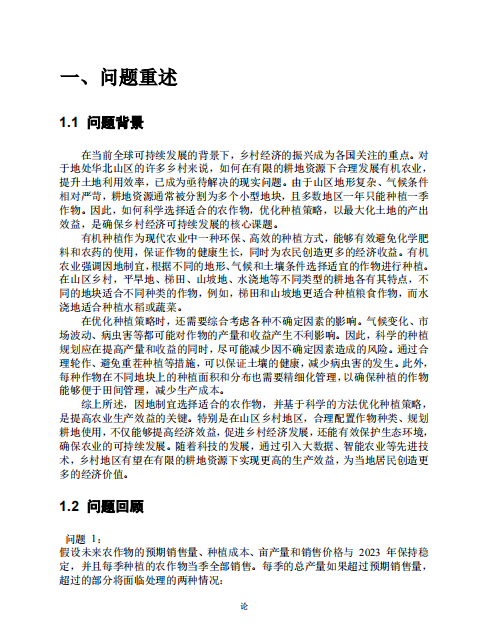目录
一:特殊类设计
1.设计一个不能被拷贝的类
2.设计一个只能在堆上创建对象的类
3.设计一个只能在栈上创建对象的类
4.设计一个不能被继承的类
5.设计一个只能创建一个对象的类(单例模式)
二:c++的类型转换
1.自定义类型,内置类型的各种转换
2.C++强制类型转换
3.RTTI

接下来的日子会顺顺利利,万事胜意,生活明朗-----------林辞忧
一:特殊类设计
1.设计一个不能被拷贝的类
拷贝只会发生在两个场景中:拷贝构造函数以及赋值运算符重载,因此想要让一个类禁止拷贝,
只需让该类不能调用拷贝构造函数以及赋值运算符重载即可
在c++98中将拷贝构造函数与赋值运算符重载只声明不定义,并且将其访问权限设置为私有
class CopyBan
{
// ...
private:
CopyBan(const CopyBan&);
CopyBan& operator=(const CopyBan&);
//...
};原因:
1. 设置成私有:如果只声明没有设置成private,用户自己如果在类外定义了,就可以不
能禁止拷贝了
2. 只声明不定义:不定义是因为该函数根本不会调用,定义了其实也没有什么意义,不写
反而还简单,而且如果定义了就不会防止成员函数内部拷贝了
在c++11后,在默认成员函数后跟上=delete,表示让编译器删除掉该默认成员函数
class CopyBan
{
// ...
CopyBan(const CopyBan&)=delete;
CopyBan& operator=(const CopyBan&)=delete;
//...
};2.设计一个只能在堆上创建对象的类
实现方式1:
1. 将类的构造函数私有,拷贝构造声明成私有。防止别人调用拷贝在栈上生成对象。
2. 提供一个静态的成员函数,在该静态成员函数中完成堆对象的创建
class HeapOnly
{
public:
static HeapOnly* CreateObj()
{
return new HeapOnly;
}
HeapOnly(const HeapOnly& hp) = delete;
HeapOnly& operator=(const HeapOnly& hp) = delete;
private:
HeapOnly()
{}
};
int main()
{
//三种创建对象的方式
/*HeapOnly hp1;
static HeapOnly hp2;
HeapOnly* hp3 = new HeapOnly;*/
HeapOnly* hp4 = HeapOnly::CreateObj();
//但是此时防不住这样创建对象的,因此将拷贝构造和赋值给禁掉的
//HeapOnly hp5(*hp4);
delete hp4;
return 0;
}实现方式2:将类的析构函数私有
class HeapOnly
{
public:
void Destroy()
{
delete this;
}
private:
~HeapOnly()
{}
};
int main()
{
//此时自定义类型是会自动调用构造和析构的,指针不会
//HeapOnly hp1;
//static HeapOnly hp2;
HeapOnly* hp3 = new HeapOnly;
//此时不能直接delete hp3
hp3->Destroy();
return 0;
}3.设计一个只能在栈上创建对象的类
方式1:不禁用拷贝构造
class StackOnly
{
public:
static StackOnly CreateObj()
{
return StackOnly();
}
//直接禁用拷贝构造的话,上面的返回是要经过拷贝构造的
//StackOnly(const StackOnly& s) = delete;
void* operator new(size_t size) = delete;
void operator delete(void* p) = delete;
private:
StackOnly()
:_a(0)
{}
private:
int _a;
};
int main()
{
//static StackOnly s1;
//StackOnly s2;
//StackOnly* s3 = new StackOnly;
StackOnly s4 = StackOnly::CreateObj();
// 禁掉operator new可以把下面用new 调用拷贝构造申请对象给禁掉
//StackOnly* s5 = new StackOnly(s4);
//但还是防不住这种情况
static StackOnly s6(s4);
return 0;
}方式2:禁用拷贝构造,提供移动构造
class StackOnly
{
public:
static StackOnly CreateObj()
{
return StackOnly();
}
StackOnly(StackOnly&& s)
{}
StackOnly(const StackOnly& s) = delete;
private:
StackOnly()
:_a(0)
{}
private:
int _a;
};
int main()
{
//static StackOnly s1;
//StackOnly s2;
//StackOnly* s3 = new StackOnly;
StackOnly s4 = StackOnly::CreateObj();
//此时拷贝构造的情况就都禁用了
//StackOnly* s5 = new StackOnly(s4);
//static StackOnly s6(s4);
// 但是防不住下面的
static StackOnly s6(move(s4));
StackOnly* s5 = new StackOnly(move(s6));
return 0;
}4.设计一个不能被继承的类
// C++98中构造函数私有化,派生类中调不到基类的构造函数。则无法继承
class NonInherit
{
public:
static NonInherit GetInstance()
{
return NonInherit();
}
private:
NonInherit()
{}
};
//C++11final关键字,final修饰类,表示该类不能被继承
class A final
{
// ....
};5.设计一个只能创建一个对象的类(单例模式)
设计模式(Design Pattern)是一套被反复使用、多数人知晓的、经过分类的、代码设计经验的
总结
单例模式:一个类只能创建一个对象,即单例模式,该模式可以保证系统中该类只有一个实例,并提供一个访问它的全局访问点,该实例被所有程序模块共享
单例模式实现模式1:饿汉模式
// 饿汉模式 在main函数之前创建对象
// 1、多个饿汉模式的单例,某个对象初始化内容较多(读文件),会导致程序启动慢
// 2、A和B两个饿汉,对象初始化存在依赖关系,要求A先初始化,B再初始化,饿汉无法保证
class InfoMgr
{
public:
static InfoMgr& GetInstance()
{
return _ins;
}
void Print()
{
cout << _ip << endl;
cout << _port << endl;
cout << _buffSize << endl;
}
private:
InfoMgr(const InfoMgr&) = delete;
InfoMgr& operator=(const InfoMgr&) = delete;
InfoMgr()
{
cout << "InfoMgr()" << endl;
}
private:
string _ip = "127.0.0.1";
int _port = 80;
size_t _buffSize = 1024 * 1024;
//...
static InfoMgr _ins;
};
InfoMgr InfoMgr::_ins;
int main()
{
InfoMgr::GetInstance().Print();
//InfoMgr copy(InfoMgr::GetInstance());
return 0;
}单例模式实现模式2:懒汉模式(c++11之前)
// 懒汉模式
class InfoMgr
{
public:
static InfoMgr& GetInstance()
{
// 第一次调用时创建单例对象
// 线程安全的风险
if (_pins == nullptr)
{
_pins = new InfoMgr;
}
return *_pins;
}
void Print()
{
cout << _ip << endl;
cout << _port << endl;
cout << _buffSize << endl;
}
static void DelInstance()
{
delete _pins;
_pins = nullptr;
}
private:
InfoMgr(const InfoMgr&) = delete;
InfoMgr& operator=(const InfoMgr&) = delete;
InfoMgr()
{
cout << "InfoMgr()" << endl;
}
private:
string _ip = "127.0.0.1";
int _port = 80;
size_t _buffSize = 1024 * 1024;
//...
static InfoMgr* _pins;
};
InfoMgr* InfoMgr::_pins = nullptr;
int main()
{
InfoMgr::GetInstance().Print();
return 0;
}单例模式实现模式2:懒汉模式(c++11之后)
class InfoMgr
{
public:
static InfoMgr& GetInstance()
{
// 第一次调用时创建单例对象
static InfoMgr ins;
return ins;
}
void Print()
{
cout << _ip << endl;
cout << _port << endl;
cout << _buffSize << endl;
}
private:
InfoMgr(const InfoMgr&) = delete;
InfoMgr& operator=(const InfoMgr&) = delete;
InfoMgr()
{
cout << "InfoMgr()" << endl;
}
private:
string _ip = "127.0.0.1";
int _port = 80;
size_t _buffSize = 1024 * 1024;
//...
};
int main()
{
InfoMgr::GetInstance().Print();
return 0;
}二:c++的类型转换
发生类型转换的,类型之间是有一定关联的
1.自定义类型,内置类型的各种转换
// a、内置类型之间
// 1、隐式类型转换 整形之间/整形和浮点数之间
// 2、显示类型的转换 指针和整形、指针之间
int main()
{
int i = 1;
// 隐式类型转换
double d = i;
printf("%d, %.2f\n", i, d);
int* p = &i;
// 显示的强制类型转换
int address = (int)p;
printf("%p, %d\n", p, address);
return 0;
}// b、内置类型和自定义类型之间
// 1、自定义类型 = 内置类型 ->构造函数支持
// 2、内置类型 = 自定义类型 ->使用operator+类型 支持
class A
{
public:
//explicit A(int a)
A(int a)
:_a1(a)
,_a2(a)
{}
A(int a1, int a2)
:_a1(a1)
, _a2(a2)
{}
// ()被仿函数占用了,不能用
// operator 类型实现,无返回类型
//explicit operator int()
operator int()
{
return _a1 + _a2;
}
private:
int _a1 = 1;
int _a2 = 1;
};
int main()
{
//单参数/多参数构造函数会发生隐式类型转换,产生具有常性的临时变量
string s1 = "1111111";
A aa1 = 1;
//A aa1 = (A)1;
A aa2 = { 2,2 };
const A& aa3 = { 2,2 };
int z = aa1.operator int();
//int x = (int)aa1;
int x = aa1;
int y = aa2;
cout << x << endl;
cout << y << endl;
std::shared_ptr<int> foo;
std::shared_ptr<int> bar(new int(34));
//if (foo.operator bool())
if (foo)
std::cout << "foo points to " << *foo << '\n';
else
std::cout << "foo is null\n";
if (bar)
std::cout << "bar points to " << *bar << '\n';
else
std::cout << "bar is null\n";
return 0;
}// c、自定义类型和自定义类型之间 -- 对应的构造函数支持
class A
{
public:
A(int a)
:_a1(a)
, _a2(a)
{}
A(int a1, int a2)
:_a1(a1)
, _a2(a2)
{}
int get() const
{
return _a1 + _a2;
}
private:
int _a1 = 1;
int _a2 = 1;
};
class B
{
public:
B(int b)
:_b1(b)
{}
B(const A& aa)
:_b1(aa.get())
{}
private:
int _b1 = 1;
};
int main()
{
A aa1(1);
B bb1(2);
bb1 = aa1;
B& ref1= bb1;
const B& ref2 = aa1;
return 0;
}这里还有个在list中使用const迭代器遍历的场景

2.C++强制类型转换
标准C++为了加强类型转换的可视性,引入了四种命名的强制类型转换操作符:
static_cast、reinterpret_cast、const_cast、dynamic_cast
int main()
{
// 对应隐式类型转换 -- 数据的意义没有改变
double d = 12.34;
int a = static_cast<int>(d);
cout << a << endl;
// 对应强制类型转换 -- 数据的意义已经发生改变
int* p1 = reinterpret_cast<int*>(a);
// 对应强制类型转换中有风险的去掉const属性
volatile const int b = 2;
int* p2 = const_cast<int*>(&b);
*p2 = 3;
cout << b << endl;
cout << *p2 << endl;
return 0;
}
class A
{
public:
virtual void f() {}
int _a = 1;
};
class B : public A
{
public:
int _b = 2;
};
//void fun(A* pa)
//{
// // dynamic_cast会先检查是否能转换成功,能成功则转换,不能则返回
// // 指向父类转换时有风险的,后续访问存在越界访问的风险
// // 指向子类转换时安全
// B* pb1 = (B*)pa;
// cout << "pb1:" << pb1 <<endl;
// cout << pb1->_a << endl;
// cout << pb1->_b << endl;
// pb1->_a++;
// pb1->_b++;
// cout << pb1->_a << endl;
// cout << pb1->_b << endl;
//}
void fun(A* pa)
{
// dynamic_cast会先检查是否能转换成功(指向子类对象),能成功则转换,
// (指向父类对象)不能则返回NULL
B* pb1 = dynamic_cast<B*>(pa);
if (pb1)
{
cout << "pb1:" << pb1 << endl;
cout << pb1->_a << endl;
cout << pb1->_b << endl;
pb1->_a++;
pb1->_b++;
cout << pb1->_a << endl;
cout << pb1->_b << endl;
}
else
{
cout << "转换失败" << endl;
}
}
int main()
{
A a;
B b;
fun(&a);
fun(&b);
return 0;
}3.RTTI



















